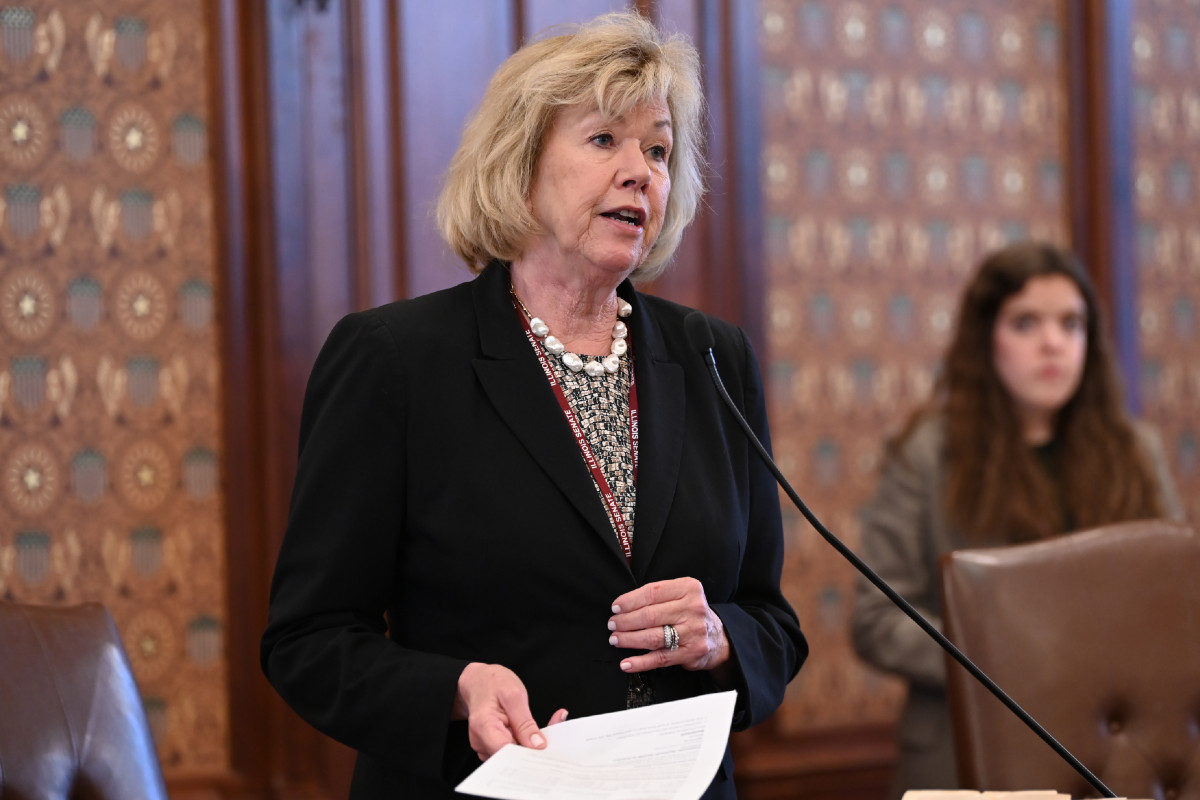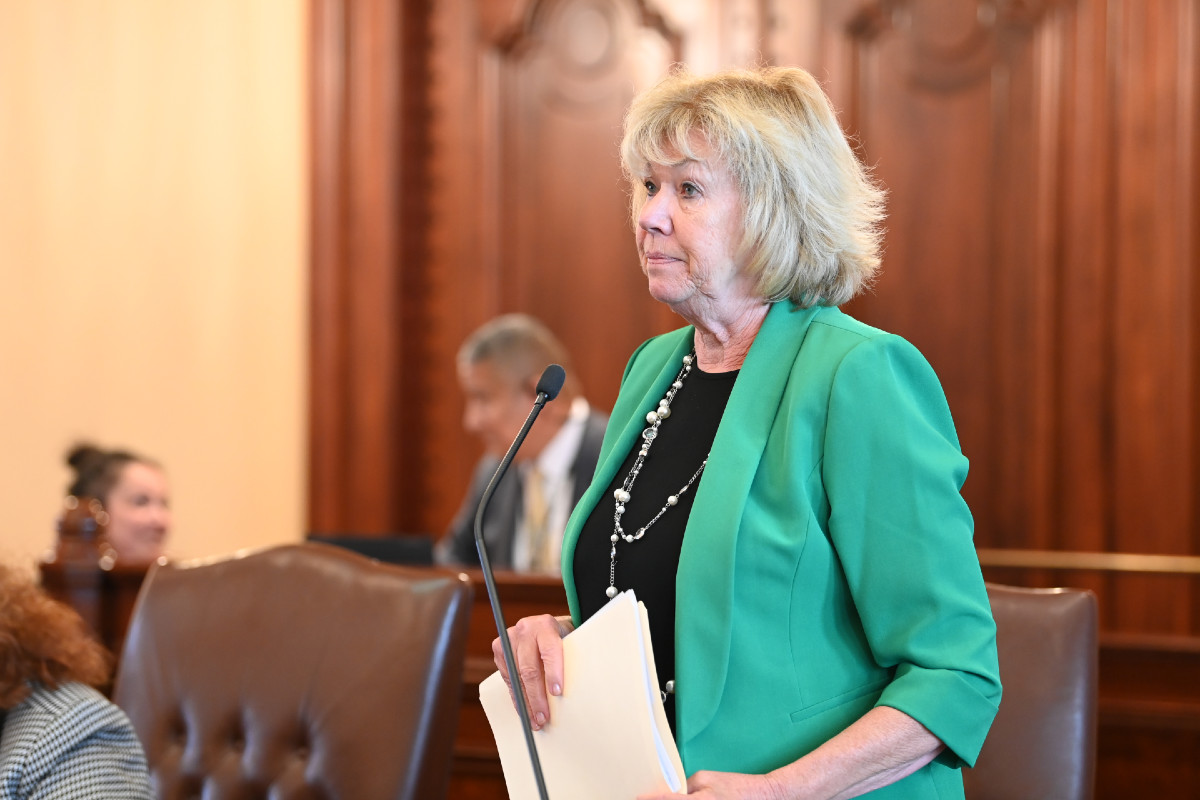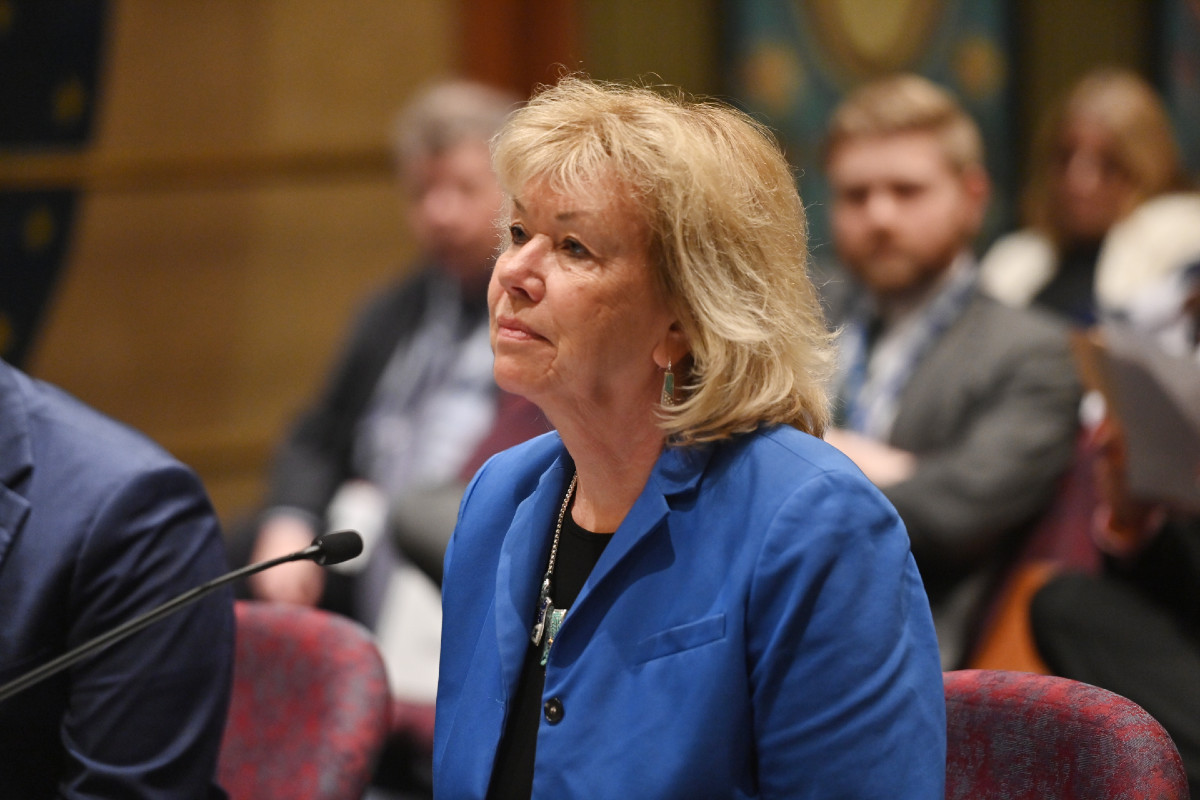Morrison law strengthens state’s approach to public health
- Details
- Category: Latest

SPRINGFIELD — Acknowledging the interconnected nature of human, animal and environmental health, State Senator Julie Morrison’s new law designed to enhance coordination among health care providers, veterinary professionals and environmental specialists in addressing Illinois' public health concerns takes effect Jan. 1.
“Recent events have demonstrated the clear connection between animal and human health – from COVID-19 to the latest bird flu cases,” said Morrison (D-Lake Forest). “Cross-disciplinary collaboration will enable the state to respond more effectively to complicated health threats.”
Senate Bill 291 establishes a One Health Commission within the Illinois Department of Public Health to promote collaboration among physicians, veterinarians and other scientific professionals. The commission will work closely with state agencies to recommend best practices to promote interdisciplinary communication, establish methods for the response to and recovery from disease outbreaks in animals and humans, and develop ways to monitor emerging health threats, among other responsibilities. The commission will submit a report of recommendations to the governor and General Assembly by Jan. 1, 2027.
The One Health approach recognizes the connection between human, animal and environmental health. This framework promotes a multisector approach to addressing broad health challenges, such as diseases that spread between animals and people, and bacteria or viruses that become resistant to medicine. Research shows integrating expertise across disciplines helps achieve better health outcomes for all living things.
"This law dismantles the barriers that currently separate human, animal and environmental health sectors," said Morrison. "Implementing a One Health framework enables us to leverage the expertise of top professionals across these fields, allowing for more proactive strategies in protecting public health."
Senate Bill 291 takes effect Jan. 1
Morrison law expands state police’s authority to investigate online crimes against children
- Details
- Category: News

SPRINGFIELD — In today's world, children can access the internet through tablets, smartphones and various smart devices, increasing their vulnerability to exploitation. State Senator Julie Morrison collaborated with the Illinois State Police to broaden their investigative powers to combat these digital crimes and better protect young people.
“Internet predators operate without regard to jurisdictional boundaries, and our law enforcement response should reflect that reality," said Morrison (D-Lake Forest). "This law eliminates obstacles that prevent state police from responding swiftly and decisively when children face online threats.”
House Bill 2586 will give ISP’s Division of Criminal Investigation broader jurisdiction to pursue online child exploitation cases and work alongside local task forces across the state. The law aims to improve response times, close jurisdictional gaps and strengthen coordination between agencies working to protect children from digital threats. These changes will bring Illinois in line with Alicia’s Law, a national initiative that empowers specialized law enforcement units to track and prosecute predators who target children online.
In addition to expanding protections for children, the law includes several technical changes to update ISP’s procedures related to task force liability coverage, the security of criminal justice systems and the handling of commercial vehicle safety checks.
“Internet crimes against children task forces are critical for identifying and stopping the criminal exploitation of children,” said ISP Director Brendan F. Kelly. “Through our partnerships with law enforcement agencies across the state, and at all levels, we’ll continue to identify child predators and bring them to justice.”
House Bill 2586 takes effect Jan. 1.
Morrison law strengthens Illinois’ response to human trafficking
- Details
- Category: News

SPRINGFIELD — Illinois has identified thousands of human trafficking victims in recent years, though officials believe the actual number is significantly higher. A new law sponsored by State Senator Julie Morrison aims to transform the state's response to trafficking cases by enabling faster victim identification and enhancing survivor support through improved coordination, training and services.
“This law reflects extensive collaboration between Illinois State Police, state agencies and lawmakers to address existing gaps in our current systems,” said Morrison (D-Lake Forest). “By improving communication between agencies, we can ensure survivors receive compassionate support more quickly while making it harder for trafficking networks to operate within our state.”
The new law takes a victim-centered, trauma-informed approach to addressing human trafficking. The law builds on recommendations from the Joint Human Trafficking Working Group — created in 2023 with input from over 60 stakeholders and state agencies — and lays out a statewide strategic plan to support trafficking survivors. This includes creating standards of care for medical and legal providers and building a network of accessible services.
Under the new law, training will expand for staff in the Illinois Department of Children and Family Services, Department of Human Services, Department of Juvenile Justice and Department of Corrections to improve the ability to identify and support trafficking victims — particularly youth in state care. It also strengthens screening procedures for at-risk individuals within the justice system.
To improve investigations, the law supports the creation of multidisciplinary task forces to help law enforcement coordinate across jurisdictions. It also eliminates the 25-year statute of limitations for trafficking survivors, allowing survivors who were trafficked as minors to seek justice at any point in their healing process.
“Too often, survivors slip through gaps in our system because agencies work in isolation,” said Morrison. “This law will enable the state to build an integrated, responsive network that delivers real support to trafficking survivors.”
Senate Bill 2323 take effect Jan. 1, 2026.
Morrison applauds $120 million Monsanto settlement to address environmental health risks
- Details
- Category: News

DEERFIELD – State Senator Julie Morrison commends the Illinois attorney general for standing up for Cook and Lake Counties after the announcement of a landmark settlement requiring Monsanto to pay $120 million for polychlorinated biphenyl – also known as PCB – contamination to the region.
“This settlement represents a critical step toward environmental justice for Illinois families who have lived with the consequences of corporate negligence for far too long,” said Morrison (D-Lake Forest). “For decades, Monsanto produced and disposed of dangerous chemicals while denying their devastating health impacts. This agreement holds them accountable and secures vital funding to protect our communities and natural resources.”
The settlement resolves a 2022 lawsuit filed by Illinois Attorney General Raoul alleging that Monsanto officials knew PCBs posed serious health and environmental risks even as they denied those dangers publicly. PCBs, banned in 1979 due to their high toxicity, are believed to cause cancer and multiple other illnesses and do not break down easily in the environment.
Under the agreement, Glencoe, Lake Bluff, Lake Forest, North Chicago, Winnetka, and a number of other communities will receive $80 million collectively, with an additional $40 million or more to be determined by further legal action. The settlement funds must be used strategically to address contamination, support affected communities, and prevent future environmental disasters.
“While no amount of money can undo the health impacts suffered by families exposed to these carcinogens, this settlement will help provide meaningful resources for cleanup, monitoring and community health initiatives," said Morrison. "I commend Attorney General Raoul for his persistent pursuit of justice and his commitment to protecting Illinois residents and our natural environment.”
Morrison has been instrumental in protecting environmental health risks, most recently leading House Bill 2516 – a law to ban intentionally added PFAS from seven categories of products sold and distributed in the state, including cookware, cosmetics, dental floss, children’s items, menstrual products, intimate apparel and food packaging. She is hopeful the Monsanto settlement is just the start, and momentum is gained to hold companies accountable for manufacturing other harmful chemicals – such as PFAS.
More Articles …
Page 2 of 133





